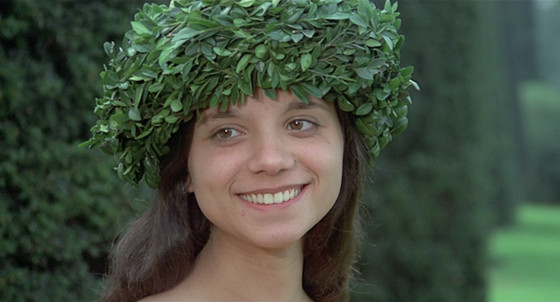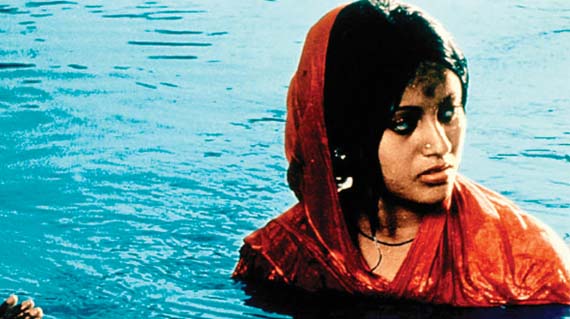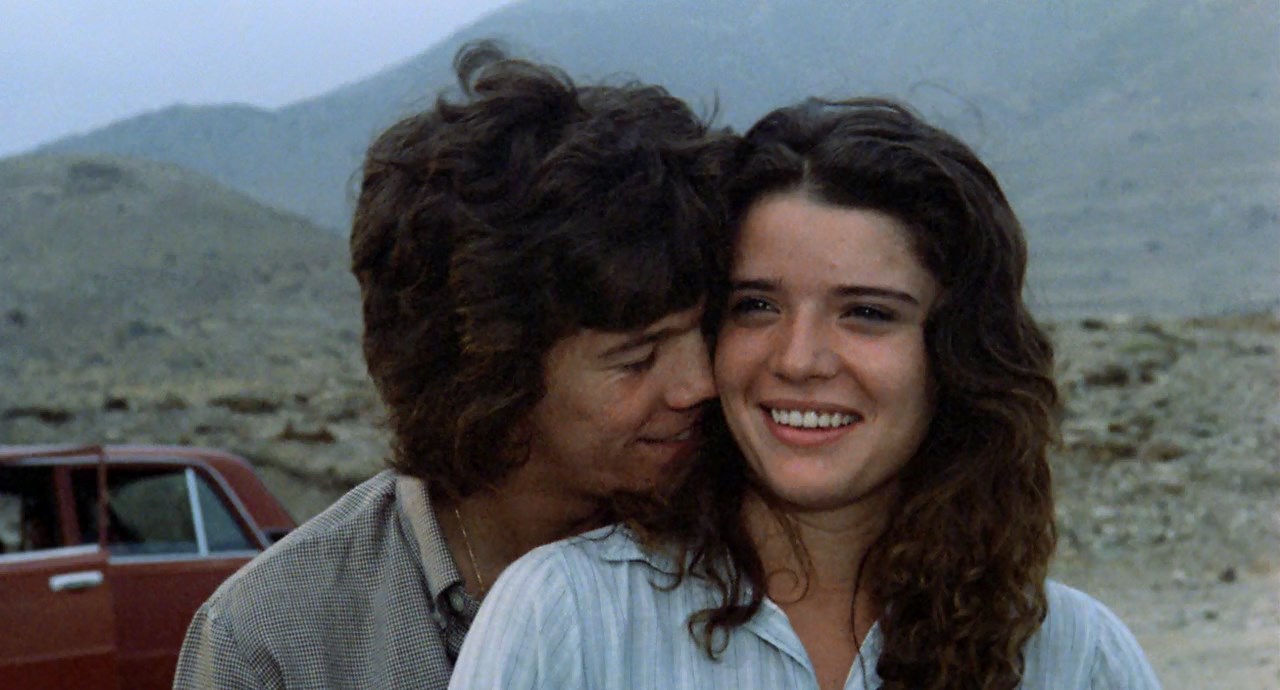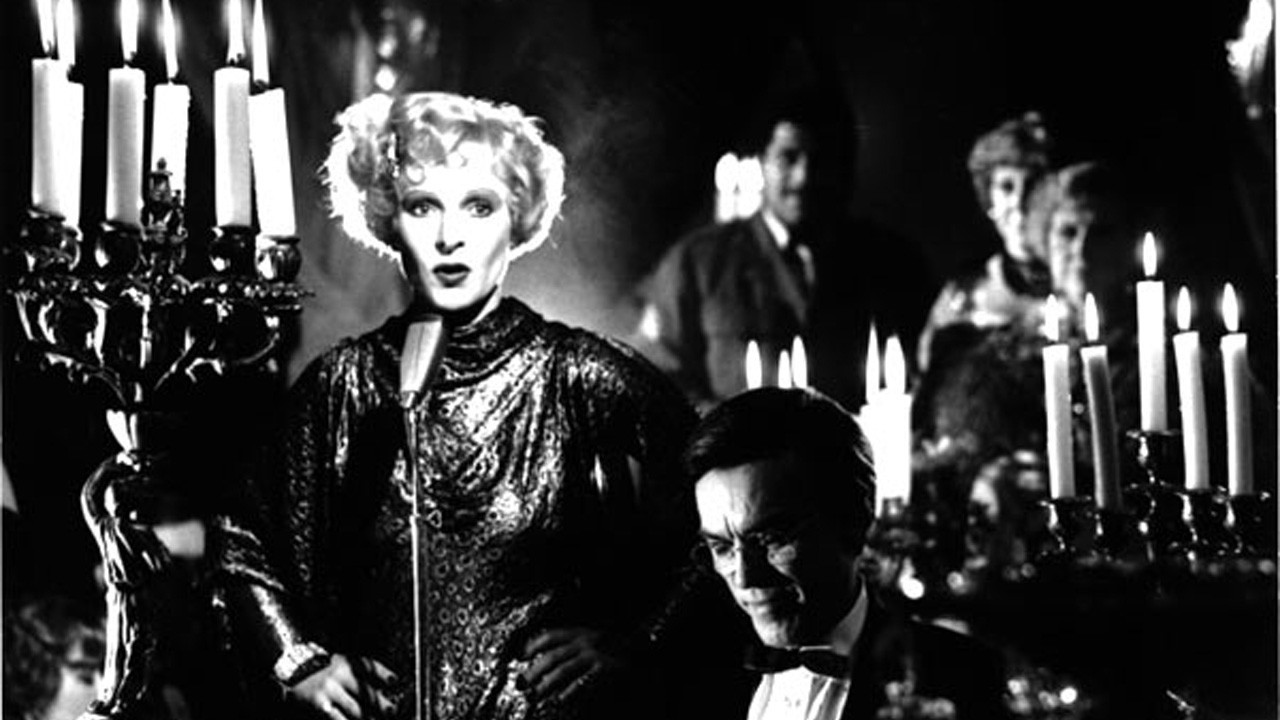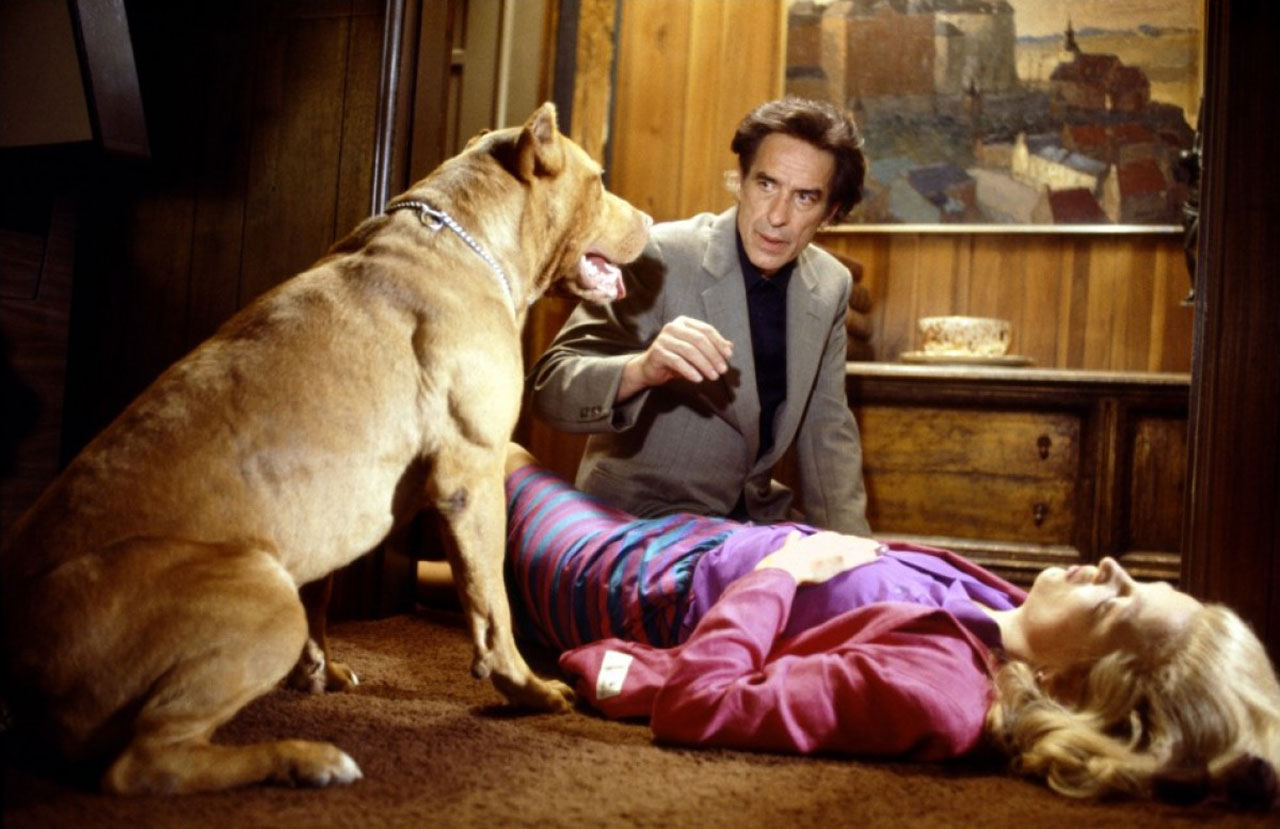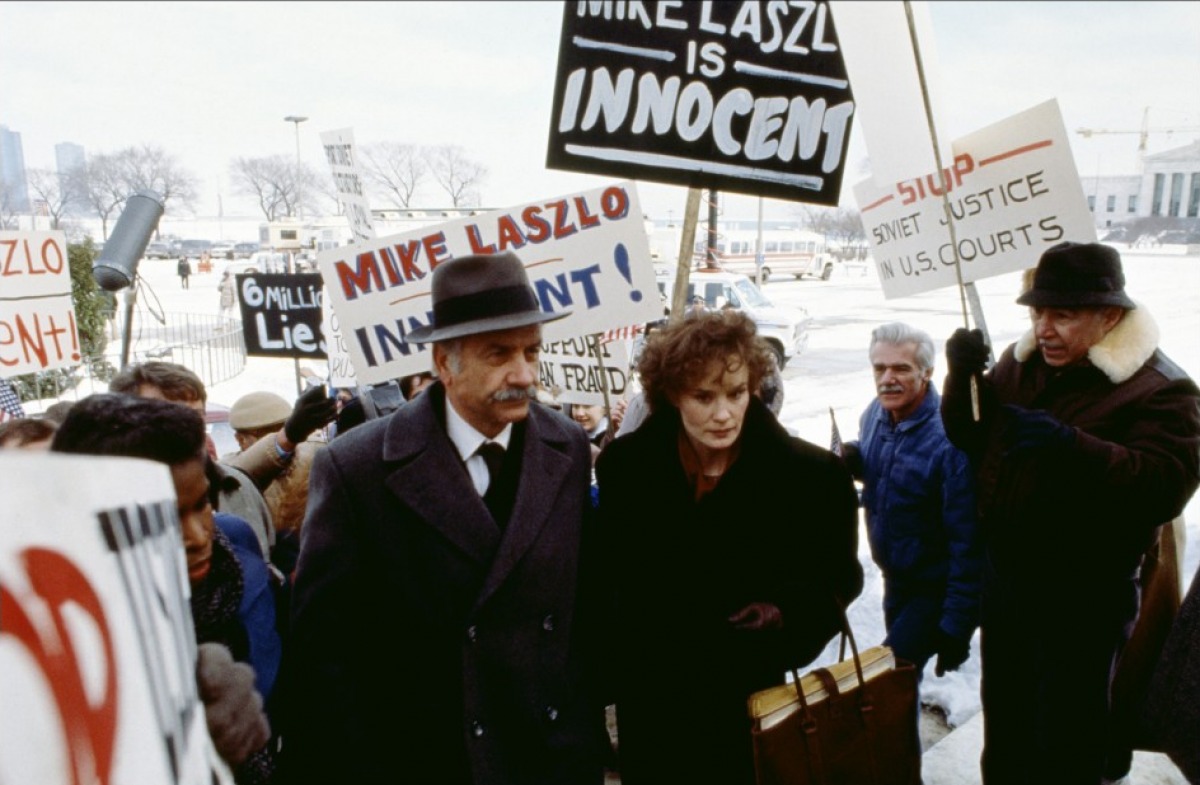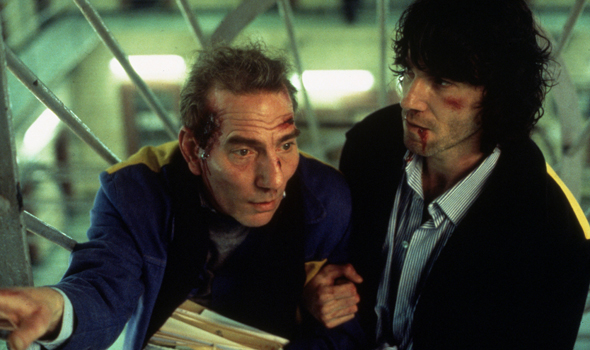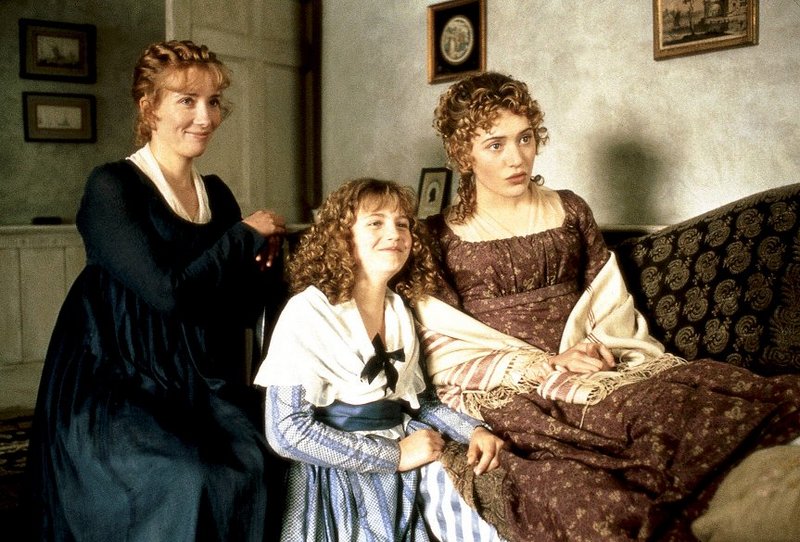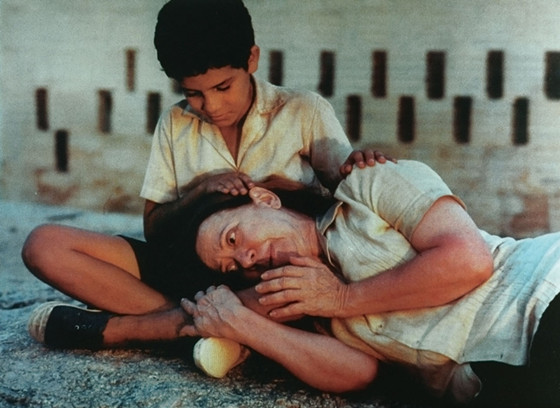9. The Canterbury Tales (Pier Paolo Pasolini, 1972)
Based on the erotic stories by Geoffrey Chaucer in the 14th century, this film is part of the “Trilogy of Life”, next to “The Decameron” and “Arabian Nights”, by acclaimed Italian filmmaker and poet Pier Paolo Pasolini.
Filmed in England, against a soundtrack composed by Ennio Morricone, the film celebrates and affirms the pleasure of sex in a positive way, through a humorous perspective described under a mystical approach. Throughout the film, Pasolini builds a scathing criticism against reactionary moralism, in addition to a representation of hell influenced by Dutch painter Hieronymus Bosch.
10. Distant Thunder (Satyajit Ray, 1973)
Satyajit Ray, acclaimed in the 50s with his famous “The Apu Trilogy”, addresses the difficulties faced by residents of a rural Indian village, in a progressive and painfully simple way, who face food shortages and other problems caused by World War II, in an event that claimed the lives of 5 million of people.
Adapted from the novel by Bibhutibhushan Banerjee, this film also features a pertinent criticism of the antiquated caste system that still prevails through India, where the population is devalued as human beings and has limited life chances.
11. Fast, Fast (Carlos Saura, 1980)
Through great cinematography and an exciting soundtrack featuring flamenco music, Carlos Saura strongly portrayed the delinquency in Spain in the 80s. Pablo, Angela, El Mecca and Sebas are four marginalized teens from Madrid who are forced to live a life of crime in order to survive and escape living in poverty.
This raw portrait of a generation at an existential crossroads, amidst the social revolution of a Spain recently freed from fascism, may not be the best-known film by Carlos Saura. However, it deserves recognition as well as his greatest features like “Carmen”, “Cria Cuervos” and “Tango”.
12. Veronika Voss (Rainer Werner Fassbinder, 1982)
The second to last work by acclaimed German director Rainer Werner Fassbinder, “Veronika Voss” is the last film of his “BRD Trilogy”, released after “The Marriage of Maria Braun” and “Lola”.
The script, loosely inspired by the career of actress Sybille Schmitz, tells the story of a sports announcer who knows the decaying actress Veronika Voss, a former star of the UFA film company in Nazi Germany. After starting a novel, he begins to investigate her past and the reasons that led her to become addicted to morphine.
Shot in black and white, and with an aesthetic inspired by the melodramas of Douglas Sirk, the work is a nod to Billy Wilder’s classic film, “Sunset Boulevard”. Furthermore, Fassbinder has a small cameo in the film, sitting on an armchair behind Veronika Voss in the movie theater scene.
13. Love Streams (John Cassavetes, 1983)
A solitary novelist drenched in alcohol, cigarettes and short relationships, played by John Cassavetes, hosts his neurotic sister during her divorce process, played by Gena Rowlands, where she loses custody of her daughter. As they live together, they begin to confront their opposite views on love; as a romantic, she sees as an unrequited sacrifice, while he thinks it’s an abstract concept masked by harsh reality.
Known as the father of American independent cinema, Cassavetes has a solid work alongside his wife and longtime partner, actress Gena Rowlands. Together in this film, they create a unique partnership, but this time also on camera. The film shared the Golden Bear with the Spanish film “No habrá más penas ni olvido”.
14. Music Box (Costa-Gavras, 1989)
The third of his four films made in the United States, in “Music Box”, Costa-Gavras addresses thorny issues such as war crimes and Nazi Germany. Based on a true story, the film garnered an Oscar nomination for lead actress Jessica Lange. In 1990, he shared the Golden Bear with “Skrivánci in niti”.
The plot revolves around Michael Laszlo, a Hungarian immigrant who has lived in the United States for many years. He is very proud of his daughter, a successful lawyer named Ann Talbot, played by Jessica Lange.
However, when the Russians reveal some documents from World War II, he is accused of being a famous war criminal. Swearing that this is a Communist plot to destroy him, Michael begs his daughter to advocate for him, but as she hears testimonies from the witnesses, she begins to doubt her own father’s innocence.
15. In The Name of The Father (Jim Sheridan, 1994)
In 1974, a bombing ordered by the IRA (Irish Republican Army) killed five people in a pub in the city of Guilford, near London. A rebellious young Irishman named Gerry Conlon and three of his friends are arrested and convicted for the crime. Sentenced to life imprisonment, Gerry sees the chance to return to society when a lawyer decides to fight for his case.
Delivering an accurate representation of the relationship between justice, estate and citizen, “In the Name of the Father” exposes the violence of the English justice system against innocents seeking to fulfill the anger of a population.
Based on the autobiographical book “Proved Innocent” by Gerry Conlon, the film was one of the most critically acclaimed 1994 productions, nominated for seven Academy Awards.
16. Sense and Sensibility (Ang Lee, 1995)
Following her husband’s death, a woman and her three daughters are now facing financial difficulties because the full inheritance has been bequeathed to the son from his first marriage, who does not bother to bolster the stepsisters.
In this context, while one of the sisters, played by Emma Thompson, uses reason as the main way to deal with situations, the other sister, played by Kate Winslet, shows sensibility to the surface. Learning to live with the reality of being a woman in the nineteenth century, together they try to find love in a society obsessed with financial status.
Based on the novel by Jane Austen published in 1811, the screenplay was adapted by Emma Thompson, which earned her a second Academy Award, this time as a screenwriter. The film was also nominated in six other categories, including Best Picture, Best Actress (Emma Thompson) and Best Supporting Actress (Kate Winslet). But before Hollywood acclaim, it had a promising participation in various festivals, including the Berlinale, where it took the main accolade.
17. Central Station (Walter Salles, 1998)
Dora writes letters for illiterate people in one of the main stations in Rio de Janeiro. One of her clients is Ana, who comes to write a letter to her son, Josue, a nine-year-old boy who dreams meet his father. At the station exit, Ana is killed in a car accident and Joshua is left abandoned. Unwillingly, Dora embraces the boy and develops a relationship with him. Determined to find the boy’s father, she travels with him to the Brazil countryside on a journey that connects them in a almost maternal relationship.
Inspired by the movie “Alice in the Cities” by Wim Wenders,”Central Station” is one of the most important Brazilian movies of the 90s. Walter Salles’ “Central Station” nods to one of his previous films, “Foreign Land”, again exploring the element of self-discovery on the road, a theme that would become recurrent in his oeuvre, in films such as “Motorcycle Diaries” and more recently, “On the Road”.
The film was acclaimed not only with the Golden Bear at the Berlin Film Festival, but also with the Golden Globe and the BAFTA for Best Foreign Film as well as two Oscar nominations, including best actress for Fernanda Montenegro.
